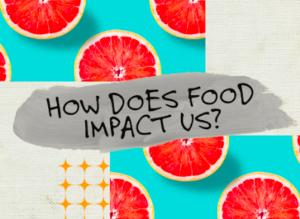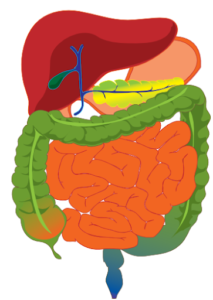How Deeply Does Food Impact Us?

In the last decade, chronic health conditions have been on the rise. Combinations of factors such as environmental, genetic and poor nutrition must all be considered when searching for the root cause of modern chronic health issues. Food specifically shows detrimental impacts on people with and without chronic illness. How truly powerful is having a well-balanced diet fit for your body? Mental health and overall well-being are also greatly influenced by the foods we eat.
Patty Lermer, a personal trainer with certifications in CMTA and Functional Diagnostic Nutrition (FDN), focuses largely on holistic healing with her clients. Many life experiences led Lermer down a path of holistic, hormonal and gut healing in 2010. This soon became a passion to help others find healing, resulting in her becoming a personal trainer. She has worked hands-on with many from the chronic illness community. Lermer knows how to create a plan that works with every person’s specific needs in order to achieve their desired lifestyle.
Lermer’s strategy in tackling this complex subject varies patient to patient. Most will start off with meeting her once or twice a week and then move down from there depending on what’s needed. Lermer has worked with many people with many different kinds of chronic illnesses. But regardless of a person’s current health, Lermer’s has found two rules that significantly help every person: making sure that your food is not only nutritionally dense but also digestible. This is the key to having a healthy relationship with food.
Many resources such as the food pyramid and different diets often change over time, as well as the fact that what works for one person may not work for another. When googling what to eat, the answers often vary from site to site. Lermer notes that the most trustworthy diet is to listen to your body combined with following the two rules above.
The Correlation Between Food and Mental Health
Lermer is a big believer in the power of food when it comes to mental health as well. Lermer has experienced firsthand how much a healthy diet can help a person work through a traumatic experience. The power of the right food allows a person to recover faster and be more resilient in situations of high stress. Lermer has noticed in her own life as well as patients that a healthy diet allows you to be more aware of things that are needed in order to help you in hard times. Things such as when to eat, what to eat and to hydrate are often forgotten when a person is going through a traumatic experience.
Lermer is a strong believer that healthy food habits need to be taught early on in education settings. Specifically, teenagers who most often deal with body image issues, knowing healthy ways to fuel their body will help them feel more comfortable in their skin. This is largely due to the proper food resulting in more energy which causes people to be happier. Levels of anxiety and depression will almost always go down, from Learner’s experience. Education on healthy food relationships to adolescents also allows for good food habits to be established early on that can help them as they grow up.
Patty Lermer feels strongly against the diet culture that has been influencing many in our society today. Different diets are constantly floating around pop culture with little scientific evidence of there being any nutritional value. Lermer feels strongly against diets such as vegetarian, plant-based, organic and the use of substitutes for dairy with products such as almond milk. Often people will find an issue with milk and opt for other plant-based substitutes with little to no research into how bad those substitutes actually are for them. Lermer never likes to have clients follow these diets due to the lack of nutrients and the number of altercations the ingredients that make up those products have.
When people are facing intolerances or allergies, Lermer has specific plans based on that person on how to fix the root problem. Often, a diet consists of completely cutting out large food groups from one’s diet. Lermer may follow this with some clients at the beginning, but often has the goal to re-introduce the foods back into the client’s diet in small amounts at a time. Lermer strongly stresses the importance of moderation in understanding that it’s not good to deprive your body of nutrients needed to function. Many diets people try to follow do not adhere to this which is a big reason why Lermer tends to steer away from fad diets.
Listening to your body and fueling it with needed nutrients is the biggest key to living a quality life. Consumed by a culture and society emphasizing quantity over quality, there is a need to break the status quo. Starting healthy habits at an early age are paramount to our well-being as we age. Being aware of the hardships people will face when trying to eat a nutritious diet will allow the change to make healthy living accessible for all.

In NCU’s Writing for Media Class, Annie Sallee dove into the significance of food.





